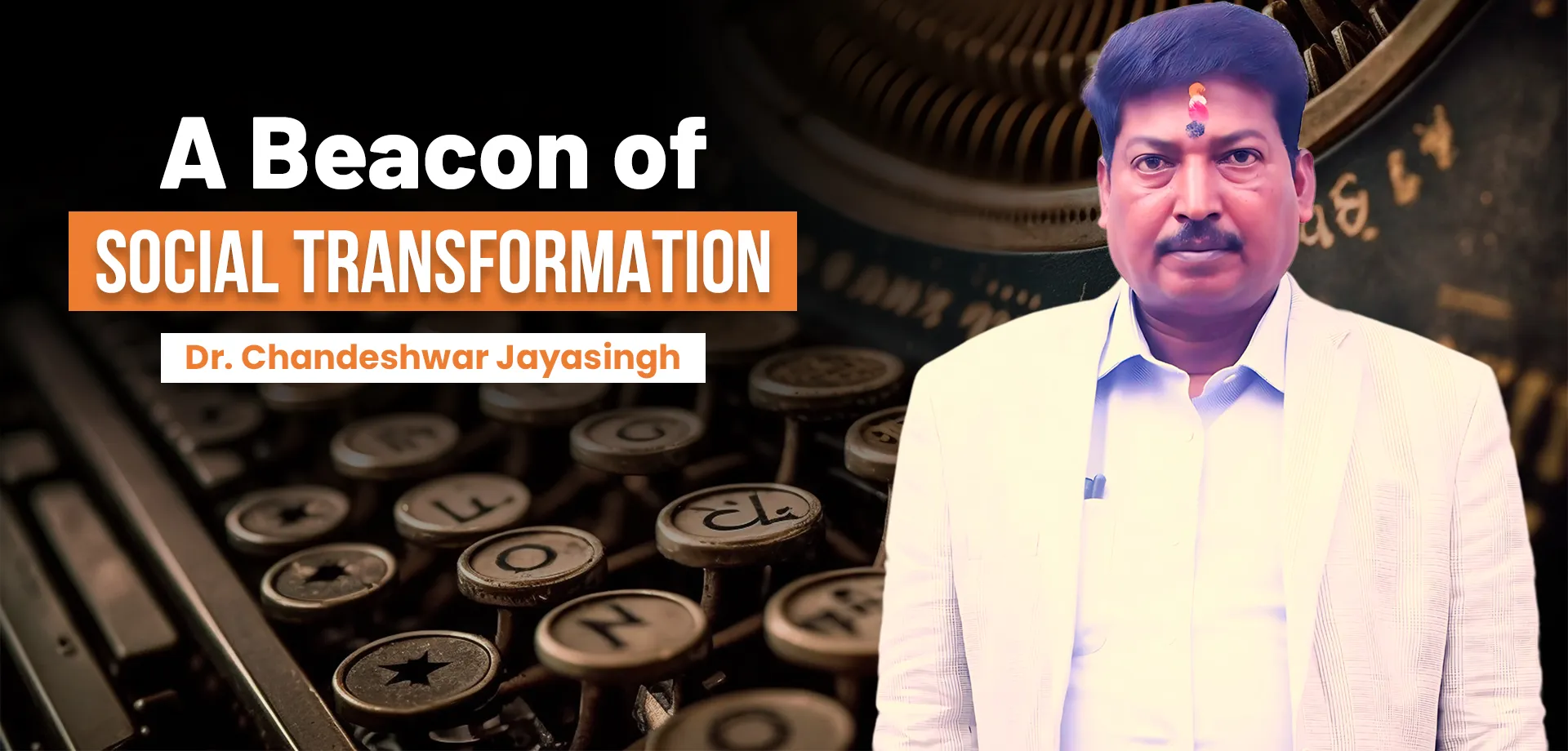
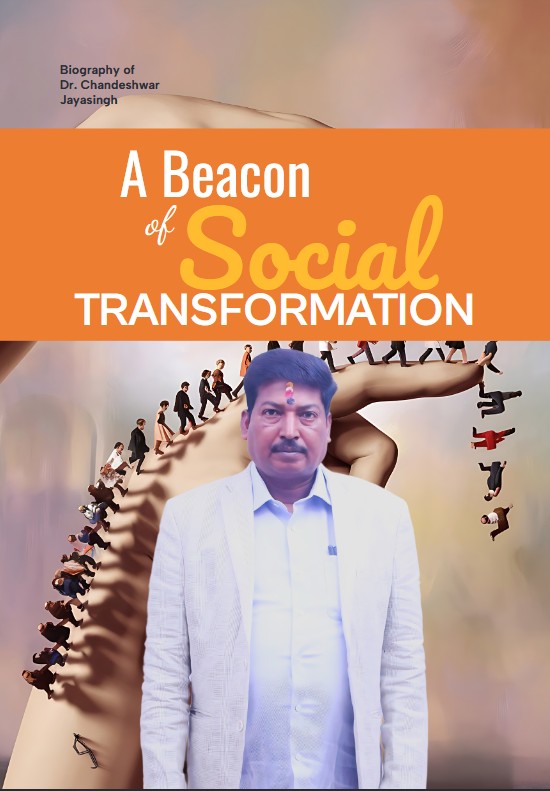
A true leader is not defined by the title they hold, but by the lives they touch, the communities they uplift, and the hope they ignite in others.
DEDICATION
This biography is dedicated to my beloved father, whose wisdom, strength, and unwavering love have shaped the very foundation of my life. It is through his example of hard work, integrity, and compassion that I have come to understand the true meaning of service and leadership.
His guidance has been a constant source of inspiration, and his belief in the power of education, community, and perseverance has been the driving force behind every endeavour I have undertaken. In his quiet but steadfast way, he instilled in me the values that continue to guide me in my journey.
Father, this work is a humble tribute to the sacrifices you made and the lessons you imparted. Your legacy lives on in every step I take, and it is because of you that I am able to serve others with the heart and soul you so generously shared with me. Thank you for being my first teacher, my strongest supporter, and the greatest example of what it means to live a life of purpose.
With deep love and gratitude,
Dr. Chandeshwar Jayasingh
Phase 1 : Roots of Compassion
“It is not how much we give, but how much love we put into giving.” – Mother Teresa
The story of Dr. Chandeshwar Jayasingh begins on a warm summer day, June 25, 1973, in the heart of Odisha, India. A place where verdant fields stretch as far as the eye can see, and the air hums with the rhythm of rural life. His birthplace, nestled in the serene embrace of nature, was a small town where the simplicity of life intertwined with the vibrant cultural heritage of the region. The town, though modest in size, pulsed with the stories of generations, carried in the hearts of its people and passed down through traditions, songs, and folklore. It was a place where every face told a story, and each story carried lessons of resilience, love, and the eternal bond between humanity and the land.
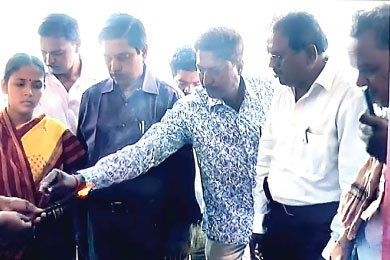
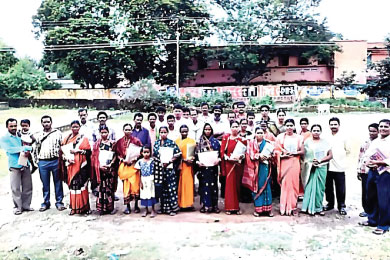
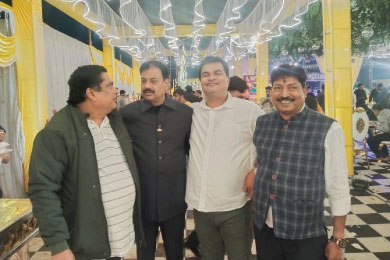
In this environment, Dr. Chandeshwar’s early years were marked by the values of hard work, perseverance, and community spirit. His family, though humble, was rich in these values. His parents, devoted to their agricultural work, emphasized the importance of family, humility, and the transformative power of knowledge. From an early age, Dr. Chandeshwar was taught that true wealth lies not in material possessions but in the ability to give to others, to share, and to uplift the lives of those around him. In the quiet evenings, as the sun set over the fields, his father would share stories of the great leaders and saints who had transformed the world with their compassion. These tales deeply resonated with young Chandeshwar, planting the seeds of empathy and kindness in his heart.
As a child, Dr. Chandeshwar was not drawn to material pursuits but to the richness of human experiences. While other children his age were engrossed in the joys of play, he found comfort and purpose in the company of the elderly in his community. Sitting beside them, he would listen with rapt attention to their stories of joy, sorrow, love, and loss. His inquisitive mind sought to understand the complexities of life, and his compassionate heart sought to alleviate the pain and suffering of others. It was not uncommon for him to spend hours conversing with the elders, learning the lessons of life they had to offer, while offering his own company and attention in return.
Dr. Chandeshwar Jayasingh’s early years were not just a prelude to his future achievements; they were a reflection of the essence of who he is. His upbringing in rural Odisha, surrounded by the enduring values of love, humility, and service, laid the groundwork for a lifetime of compassionate work. These formative years, marked by both personal challenges and community-focused endeavours, set the stage for a journey of transformation—not just for him, but for the countless lives he would touch. The roots of compassion that took hold during his youth would grow into a legacy of service, one that continues to inspire and uplift the people of Odisha and beyond.
Phase 2 : The Leader Emerges
A genuine leader is not a searcher for consensus but a molder of consensus.” – Martin Luther King Jr.
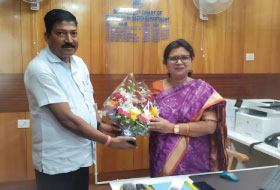
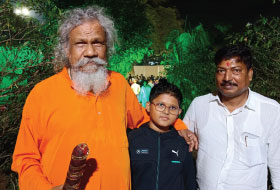
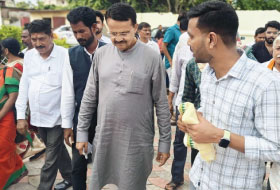
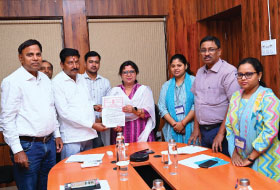
Dr. Jayasingh’s leadership philosophy was anything but conventional. His perspective on leadership was rooted not in the pursuit of authority but in a deep commitment to serving the community and fostering collective progress. For him, leadership was not about holding power but about empowering others, about inspiring people to look beyond their immediate concerns and work together toward a shared vision of social transformation. His leadership style was founded on action, inclusivity, and collaboration—values that became the hallmark of his tenure as president.
When Dr. Jayasingh assumed leadership, the Sangha’s work was primarily concentrated in the local area. However, his vision extended far beyond these boundaries. He understood that the challenges faced by rural Odisha were vast and varied, and that a localized approach would not suffice to address the region’s many needs. With a strong commitment to inclusivity, he expanded the Sangha’s reach to several districts, including Puri, Khordha, Subarnapur, Boudh, Bolangir, Kalahandi, Gajapati, and Rayagada. Each of these districts posed unique challenges, from poverty and illiteracy to lack of basic infrastructure and inadequate healthcare.
As an advocate for rural development, Dr. Jayasingh understood the fundamental role of agriculture in the livelihoods of the people of Odisha. Recognizing that farming was the backbone of the rural economy, he worked tirelessly to improve agricultural practices in the region. He launched several initiatives aimed at promoting sustainable agriculture, introducing modern farming techniques that could increase productivity while also conserving the land and resources.
Dr. Jayasingh’s vision of a thriving community included access to quality healthcare for all, regardless of their socioeconomic status. He firmly believed that no community could thrive without proper healthcare services, which were often inaccessible to rural populations. With this in mind, he facilitated the establishment of health camps and clinics in remote villages across the districts. These healthcare facilities provided free medical check-ups, basic treatment, and medicines to the underserved communities.
One of the cornerstones of Dr. Jayasingh’s leadership was his commitment to gender equality. He recognized that the empowerment of women was essential for the progress of society. Under his guidance, the Sangha launched several initiatives to promote women’s participation in the workforce and provide them with the skills necessary to achieve financial independence.
Under his leadership, the Sangha launched programs to bring school dropouts back into the education system. Evening classes were organized for children who could not attend school during the day due to work or family obligations. Scholarships were provided to underprivileged children, allowing them to pursue their education without the burden of financial constraints.
Through his tireless efforts and unwavering dedication, Dr. Jayasingh transformed Juba Jyoti Jubak Sangha into a beacon of hope and progress in Odisha. His leadership went beyond addressing immediate problems; it focused on creating lasting change by addressing the root causes of societal issues. He inspired countless individuals to join his mission, creating a ripple effect of transformation that spread across the districts in Odisha.
Phase 3 : A Voice for the Voiceless
“Injustice anywhere is a threat to justice everywhere.” – Martin Luther King Jr.
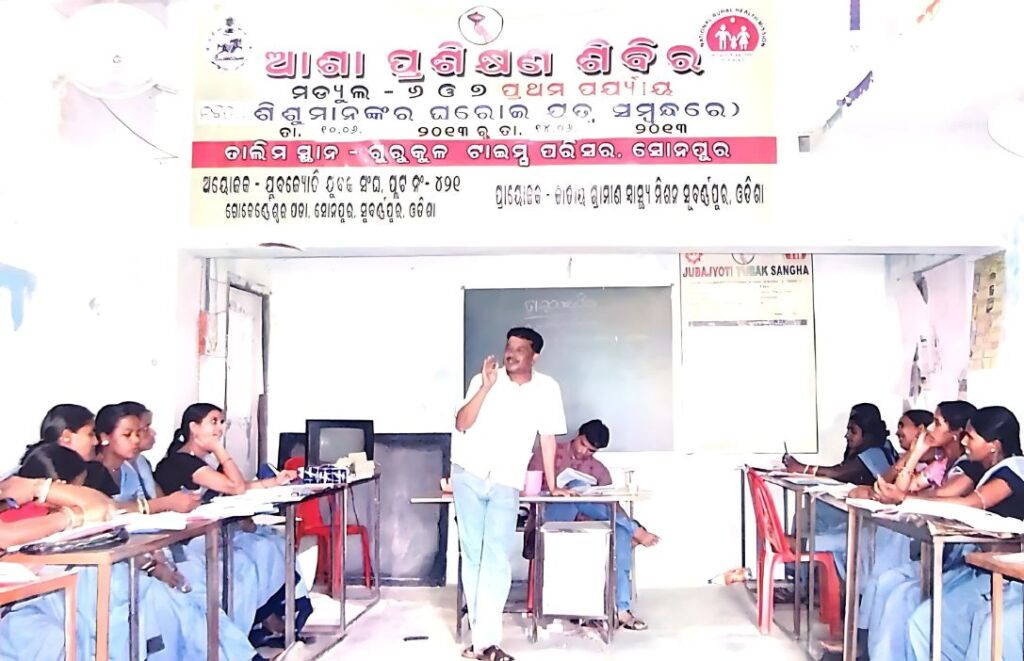
These centres didn’t merely serve as shelters; they became centres of empowerment. Women were provided with skill development programs, vocational training, and counselling services to rebuild their lives. Dr. Jayasingh’s holistic approach ensured that survivors could reintegrate into society with confidence and self-reliance. His advocacy also extended to influencing policy changes, urging local and state governments to strengthen laws and allocate resources for the protection of women.
Another significant aspect of Dr. Jayasingh’s work was his dedication to the welfare of senior citizens. He believed that the elderly, who had spent their lives contributing to society, deserved respect and care in their twilight years. In many rural parts of Odisha, he observed the neglect and isolation faced by senior citizens, especially those without families.
Dr. Jayasingh’s dedication to child protection was another cornerstone of his social service. He identified education as a powerful tool to break the cycle of poverty and exploitation. His efforts led to the establishment of community schools in underserved areas, ensuring that children from marginalized communities had access to quality education.
Beyond education, Dr. Jayasingh was deeply involved in campaigns against child labour, trafficking, and abuse. He worked closely with law enforcement agencies, NGOs, and local communities to rescue and rehabilitate children trapped in exploitative conditions. His awareness programs educated parents and community leaders about the rights of children and the importance of providing a nurturing environment for their growth.
Dr. Jayasingh believed that societal change could only occur through awareness and collective action. He tirelessly campaigned on critical social issues such as gender equality, environmental conservation, and healthcare. His initiatives included organizing workshops, seminars, and rallies to mobilize public opinion and foster a sense of responsibility among citizens.
The initiatives led by Dr. Jayasingh brought tangible change and hope to countless families. His ability to address the root causes of social issues, rather than just their symptoms, set him apart as a visionary leader. Families that once struggled in silence found solace in his programs, and individuals who had lost hope discovered new beginnings.
Under his leadership, the Sangha launched programs to bring school dropouts back into the education system. Evening classes were organized for children who could not attend school during the day due to work or family obligations. Scholarships were provided to underprivileged children, allowing them to pursue their education without the burden of financial constraints.
Through his tireless efforts and unwavering dedication, Dr. Jayasingh transformed Juba Jyoti Jubak Sangha into a beacon of hope and progress in Odisha. His leadership went beyond addressing immediate problems; it focused on creating lasting change by addressing the root causes of societal issues. He inspired countless individuals to join his mission, creating a ripple effect of transformation that spread across the districts in Odisha.